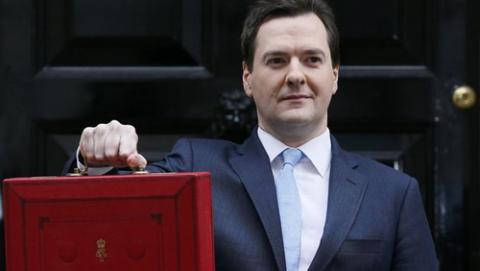Government austerity demands that we die within our means

Image source: Lee Davy/Flickr, CC BY 2.0
As we move towards the general election, we are paralyzed by what is probably the biggest single issue affecting ordinary people in the country: austerity. We are unable to fully understand both the economic madness of austerity and the true scale of the human cost and death toll that ‘fiscal discipline’ has unleashed.
Since coming into power as Prime Minister, Theresa May has made a strategic decision not to use the word ‘austerity’. Instead she has adopted a more palatable language in a vain attempt to distance herself from the Cameron governments before her: “you call it austerity; I call it living within our means.”
The experience of countless thousands of people is precisely the opposite: people are actively prevented from living within their means and are cut off from their most basic entitlement to: housing, food, health care, social care and general protection from hardship. And people are dying as a result of these austerity effects. In February, Jeremy Corbyn made precisely this point when he observed the conclusions of one report that 30,000 people were dying unnecessarily every year because of the cuts to NHS and to local authority social care budgets.
But this is really only the tip of the iceberg. The scale of disruption felt by people at the sharp end of these benefit reforms is enormous. Countless thousands of others have died prematurely following work capability assessments: approximately 10,000 according the government’s own figures. People are dying as a result of benefit sanction which has fatal impacts on existing health conditions, such as diabetes and heart disease.
Austerity is about dismantling social protection. The crisis we face in social care is precipitated by cuts to local authority funding. In the first 5 years of austerity, local authority budgets were cut by 40%, amounting to an estimated £18bn in care provision.
A decade of cuts, when added up, also means that some key agencies that protect us, such as the Health and Safety Executive and the Environment Agency will have been decimated by up to 60% of funding cuts. Scaling back on an already paltry funding in these critical areas of regulation will lead to a rise in pollution related illness and disease and will fail to ensure people are safe at work.
The economic folly is that austerity will cost society more in the long term. Local authorities are, for example, housing people in very expensive temporary accommodation because the government has disinvested in social housing. The crisis in homelessness has paradoxically led to a £400 million rise in benefit payments. The future costs of disinvesting in young people will be seismic.
Ending austerity would mean restoring our system of social protection and restoring the spending power of local authorities. It would mean, as all the political parties except the Conservatives recognise, taxing the rich, not punishing the poor in order to pay for a problem that has its roots in a global financial system that enriched the elite. It would also mean recognizing that the best way to prevent the worsening violence of austerity and to rebuild the economy is to re-invest in public sector jobs.
In our book published this week, we bring together 31 leading authors to challenge this violent agenda. The book provides a comprehensive guide to the social violence that has been unleashed by austerity and shows, unequivocally, that austerity is not about ‘living within our means’ like some kind of fantasy household budget in Hampstead. Austerity is designed to punish already disenfranchised populations, in targeted and violent ways.
Both the economic madness and the vicious cruelty of austerity have been almost written out of this election. Come June, the next elected government has to produce a viable alternative strategy to austerity if it wants to reduce the death toll and properly protect its people. No matter how the politics of Brexit or the politics of devolution and independence play out in the future, austerity is the key political issues that will shape the lives and deaths of the British people.
The Violence of Austerity, edited by Vickie Cooper and David Whyte, is published by Pluto Press.
This post was originally published by Open Democracy.
Over the next four weeks we will publish a series of blogs by HERC authors included the new book ‘The Violence of Austerity.’ Vicky Canning, Dan McCulloch, Steve Tombs and Joanna Mack will each describe in detail how austerity is having profoundly violent impacts. The book is available to buy from Pluto Press:
https://www.plutobooks.com/9780745399485/the-violence-of-austerity/
Victoria Cooper, The Open University and David Whyte, University of Liverpool
